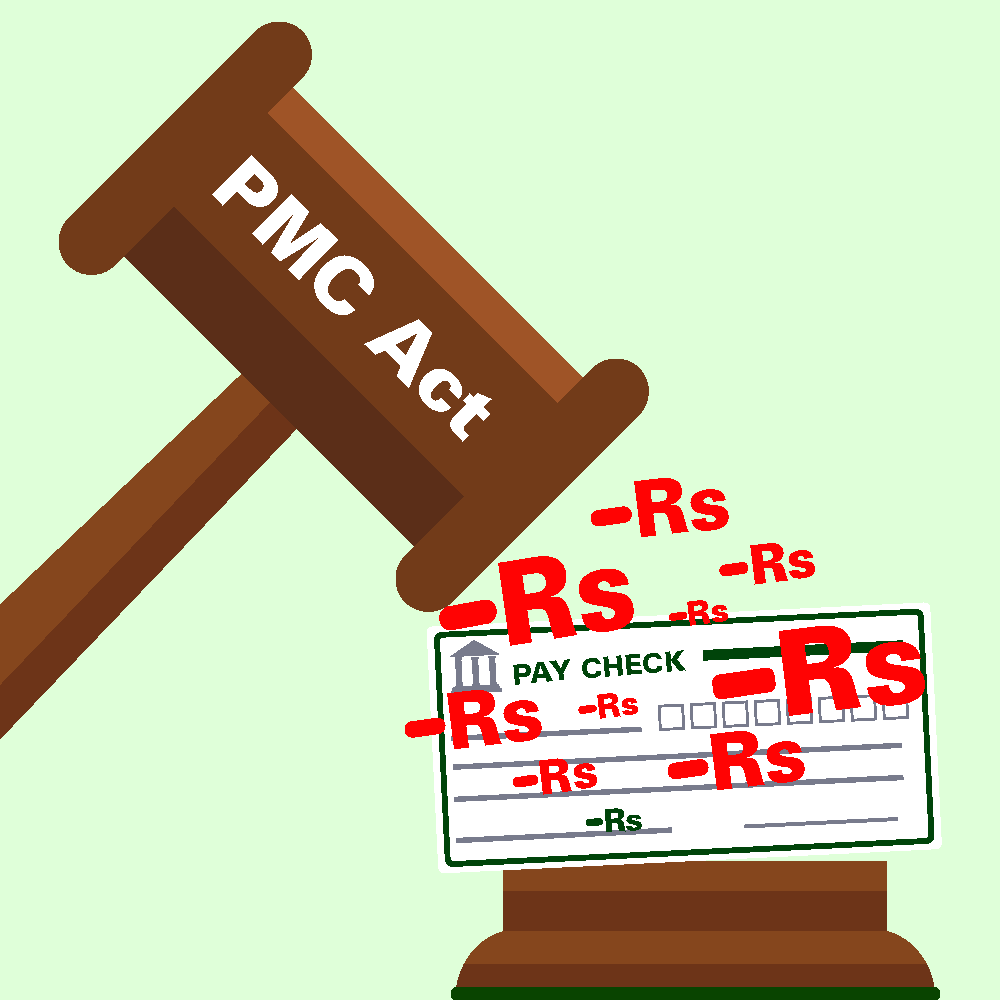Jamal Awan, a graduate of the King Edward Medical University (KEMU) and a trainee doctor at the Mayo Hospital, Lahore, has been protesting since 2019. The reason for his recurring appearance in protests is a set of laws passed over the last year or so to make changes in how the medical profession is regulated – or not -- in Pakistan.
The first of these laws, Punjab Medical Teaching Institutions Reforms Act (MTI Act), was passed by the Punjab Assembly in March 2020 after having been a bone of contention between young doctors and the Punjab government for many months. Jamal says the biggest problem with this law is that it will hamper the professional growth of aspiring doctors. “I fear that many graduates finishing their training, such as myself, will be rendered unemployed by it,” he says.
Through this act, the provincial government has given administrative and financial autonomy to all those government-owned hospitals that are attached to medical colleges and universities. They are now to be run by autonomous boards, appointed by the provincial government. Furthermore, a management committee will be set for every hospital forming a part of the medical teaching institution, headed by the Dean of the institution, having the power to hire and fire doctors. Awan believes MTI Act is “like a bully in a playground, chasing and attacking doctors”.
This law has been followed by another piece of legislation, the Pakistan Medical Commission Act 2020 (PMC Act 2020), which, according to Awan, “will tie a tight rope around the necks of the medical professionals in Pakistan”.
In his opinion – which many doctors share across Pakistan -- “this [second] act has given a free hand to medical teaching institutions to appoint and dismiss teachers almost at will”. He fears that this will result in many institutions either hiring substandard faculty to save money, or appointing junior teachers to senior positions or, worse still, bringing in teachers from the outside and, thus, undermining the seniority and experience of those who have had a long association with a teaching institution.
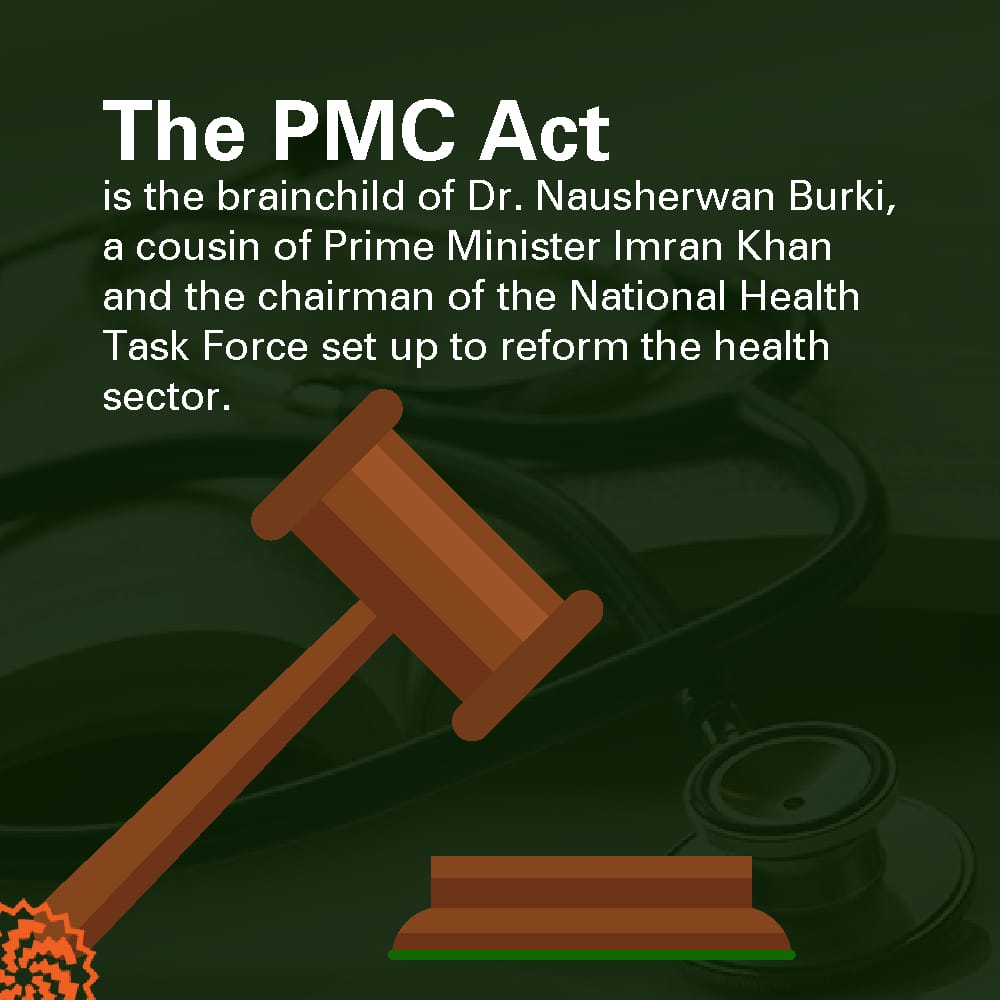
Together with a third law, the Medical Tribunal Act 2020, the two laws mentioned above have taken the wind out of any resistance that the doctors have been putting up against them. Anyone known to have protested against the passage of these laws runs the risk of not being hired by a hospital run under MTI Act or a medical college or university governed by PMC Act, says Awan.
The last of the three laws hangs like the sword of Damocles over doctors working at government-owned hospitals. For one, according to Jamal, if and when they take to the streets they could be sent packing for breaching the institutional discipline.
“Thousands of doctors, therefore, can no longer exercise their democratic right to protest against laws which impact them adversely,” says Awan. Exercising this right may lead to either their termination from their jobs or an altogether cancellation of their licenses to practice medicine in Pakistan, he adds.
This situation, he argues, is forcing a large number of medical graduates and practicing doctors to move abroad. “There is already a serious shortage of doctors in Pakistan because medical professionals have no incentive to work here. This shortage will become more serious now because the state is refusing to facilitate them.”
Dr Tariq Mian, president of the Pakistan Academy of Family Physicians (PAFP), a Lahore-based organization providing continued medical education to family physicians and general practitioners, also believes the news acts generally -- but the PMC Act particularly -- “do not safeguard the interests of doctors.” According to him, “the entire medical fraternity is opposed to these laws because the doctors were never consulted during their drafting.” The Senate of Pakistan, too, had rejected the PMC Ordinance in 2019 because of its serious flaws and that is why the government had to pass them in a joint sitting of the parliament, he says.
He also remarks that the Pakistan Medical Commission, set up under the PMC Act, is not an independent regulatory body like the now defunct Pakistan Medical and Dental Council was. “This commission is essentially a government department since all its members have been appointed by the prime minister – and that too without taking stakeholders of the medical community on board,” he says.
The new legislation galore
One of the most profound changes brought about by the MTI Act concerns private practice by doctors serving in the government-owned hospitals. It allows “all consultants working in a hospital forming part of the teaching institution to do their private practice within the hospital of a Medical Teaching Institution.” This private practice will be done in the evening hours.
The law also provides that beds, operation theatres and other medical equipment will be reserved for the private patients examined during the evenings. As a compensation for using these facilities, private consultants will pay institutional charges but what makes this provision rather ridiculous is that “a percentage share from the institutional charges shall be distributed between the employees of the Medical Teaching Institution” which include the same consultants. In other words, they will be getting back at least some of the institutional charges they have to pay.
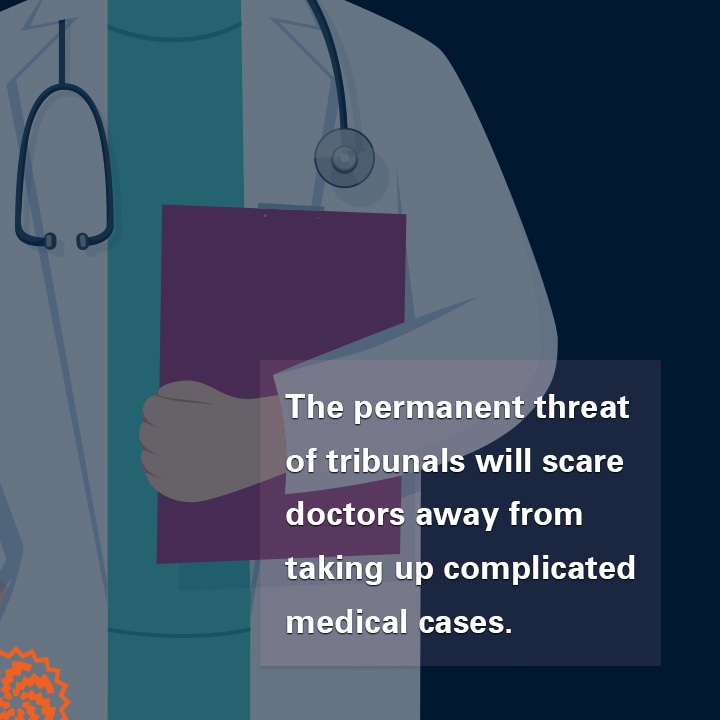
Members of several representative bodies of the medical sector have issued grievances on the faulty composition of PMC, stating that the appointments of PMC highlight politicization in the regulation of the medical community of Pakistan, which will promote personal interests of those who aim to derive profits from the profession.
The other major problem with the MTI Act is that it has the potential to evict poor patients from the government-owned hospitals which are their only resort for getting medical care. Since the patients admitted by consultant during their private practice will not be made to leave the wards and beds during the morning hours, those coming in during the morning shift will have fewer beds and other facilities being available to them. This, complain many young doctors, will end up promoting private practice by senior doctors at the expense of both the hospitals and poor patients.
Many young doctors and fresh medical graduates like Awan also believe that the act will hamper them from initiating their private practice since their older, senior and more resourceful colleagues will hog all the avenues for private practice being made available at the government-owned hospitals.
A few months before the MTI Act became a law, President Arif Alvi also issued Pakistan Medical Commission Ordinance which dissolved the Pakistan Medical and Dental Council (PMDC) – a long running supervisory body for the medical profession in Pakistan -- and set up a new regulatory entity, Pakistan Medical Commission (PMC). The medical fraternity, including doctors, teachers, nurses and paramedics protested vociferously against the ordinance.
Some of them also challenged the ordinance in the Islamabad High Court which ruled that it was illegal. The court also told the government to restore PMDC and reinstate its 220 employees who were sacked after the ordinance was promulgated. In September 2020, however, the government reintroduced PMC – this time through an act passed by a controversial joint session of the parliament because it was boycotted by the opposition parties.
There are several reasons for discontent among medical practitioners over the PMC Act. To begin with, it has introduced a new barrier to the entry of medical graduates into medical profession -- the National Licensing Examination (NLE). Clearing this exam has been made mandatory for all medical graduates before they can obtain a license to practice medicine. If a graduate fails to clear NLE, he or she will not be granted the license -- until he or she retakes the exam and clears it.
While, on the one hand, those who have to appear in NLE are unaware of the format of the exam and are, thus, anxious about their future, on the other, this system displays a total distrust of the institutions that conduct exams of medical students. Many fresh graduates argue that the government should have reformed the existing examination system rather than bringing in an additional test which will require both time and energy.
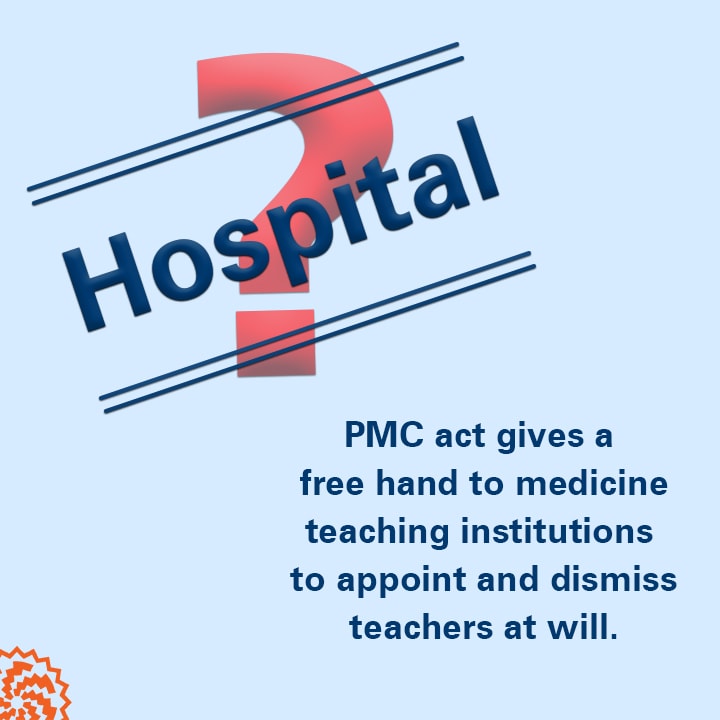
One of the architects of the test, however, says that all Pakistani doctors who move abroad have to pass such tests before practicing medicine in their adopted country. “If they can take such tests in other countries, why is it such a problems to do the same in Pakistan?” he asks.
The other major problem that most doctors have with the PMC Act is that it provides for medical tribunals -- comprising of medical and legal experts appointed by the prime minister -- to conduct disciplinary or other proceedings against them. These proceedings can be initiated on any complaint of negligence or indiscipline – lodged by either the PMC, a medical institution or a patient. The punishments that a tribunal can impose range from a fine to the revocation of license.
Dr Tariq Mian says the permanent threat of having to face the tribunals will scare the doctors away from taking up complicated medical cases which, in turn, will impact the entire healthcare system in the country.
All the king’s men
According to the PMC Act, Pakistan Medical Commission consists of three entities – Medical and Dental Council, National Medical and Dental Academic Board and National Medical Authority.
The 17-member National Medical and Dental Academic Board comprises of members of academia appointed by the prime minister. They have been given the task of setting a uniform curriculum for the undergraduate medical and dental studies across Pakistan. They will also formulate the structure and syllabus for the Medical and Dental Colleges Admission Test (MDCAT) and the National Licensing Examination (NLE).
The National Medical Authority is designed as the secretariat of the commission and has the power to conduct MDCAT and NLE. It is also authorized to grant licenses to medical practitioners as well as to medical institutions. Seven of its members come from the medical fraternity. Other have been appointed based on their specialized roles.
‘Pakistan Medical Commission, set up under the PMC Act, is not an independent regulatory body like the now defunct Pakistan Medical and Dental Council was. This commission is essentially a government department since all its members have been appointed by the prime minister – and that too without taking stakeholders of the medical community on board.'
Also Read
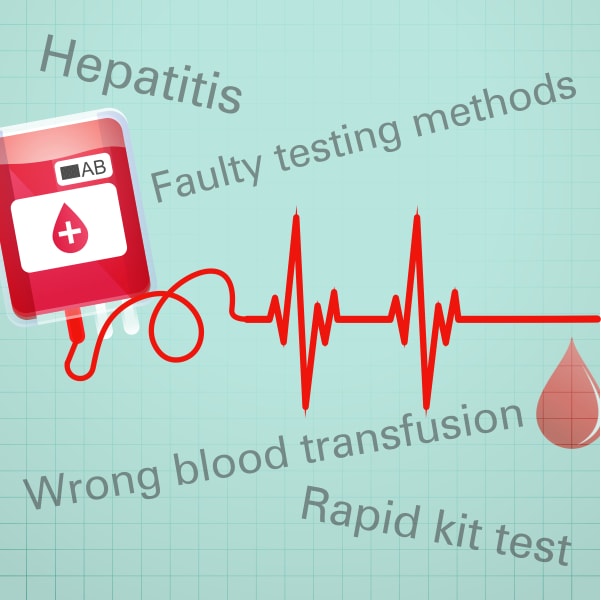
Flawed blood transfusion and blood testing practices: Putting lives at risk
The nine-member Pakistan Medical and Dental Council is meant to supervise the working of the other two bodies. Its members have been nominated by the prime minister and include four medical practitioners, a philanthropist, a lawyer, a chartered accountant, a federal secretary and the Surgeon General of Pakistan Army. The federal government also has the power to nominate the president and the vice president of the council from among its members.
Dr Tariq Bhutta, the last president of the defunct Pakistan Medical and Dental Council, says these members have not been appointed on merit. “In the presence of many vice chancellors, deans, senior professors and leading faculty members of medical institutions, an assistant professor has been appointed as the president of the council while its vice president is a lawyer who is not even remotely related to the medical profession and is unaware of its problems,” he says.
Bhutta is also critical of the fact that the composition of PMC’s supervising body, the Medical and Dental Council, has more members from the private sector than from the government whereas the number of government hospitals and teaching institutions in Pakistan still exceeds the private ones. “The private sector has been given an overriding majority in the Medical and Dental Council of PMC, while the representation of the public sector is only nominal,” he says.
Dr Ashraf Nizami, who heads the Lahore chapter of the Pakistan Medical Association (PMA), the largest trade organization of doctors in Pakistan, also does not approve of the PMC’s structure. Alleging that it has not been formed transparently, he says that private sector, which operates as business rather than working for public interest, has been given great leverage in it to enable it to “promote its commercial interests in the medical profession”.
He also opines that “medical teaching faculty has been conveniently excluded from the commission.” The presence of medical teachers in the academic board, too, according to him, is merely an eyewash because the Medical and Dental Council has the authority to accept or reject their recommendations.
All in the family
The PMC Act is a brainchild of Dr Nausherwan Burki. He happens to be a cousin of Prime Minister Imran Khan, a member of the board of directors of Shaukat Khanum Cancer Hospital, Lahore, which has been set up in the memory of Imran Khan’s late mother, and the chairman of the National Health Task Force, set up by Imran Khan to reform the health sector.
By profession, Dr Nausherwan Burki is a professor of medicine and is working as a pulmonologist at the UConn John Dempsey Hospital, Farmington, in the American state of Connecticut.
He says the PMC’s objective is to reform Pakistan’s health sector in such a way that it meets the international standards. In his opinion, Pakistani medical community had veered away from meeting those standards under the PMDC supervision. “Curriculums were not being strictly followed by medical institutions, the criterion for issuing licenses was not being implemented and the cases of medical malpractices and negligence committed by doctors were increasing,” he says.
PMC, he says, has been established to change this situation for the better. Its main objective, according to him, is not to safeguard the interest of doctors but to “protect the public” from negligent and incompetent medical practitioners.
This report was first published by Lok Sujag on 12 Jan 2021, on its old website.
Published on 27 May 2022
